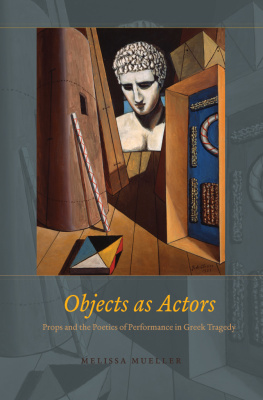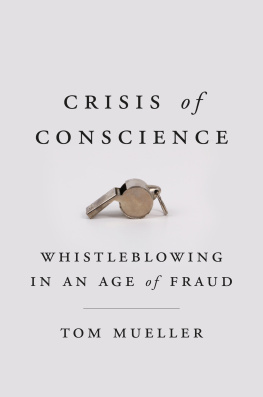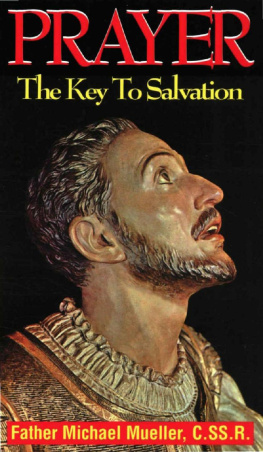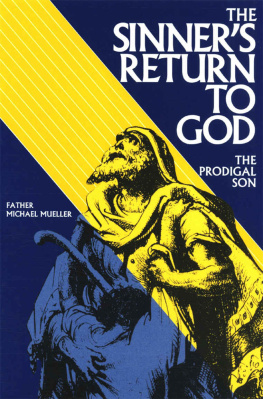Melissa Mueller - Objects As Actors
Here you can read online Melissa Mueller - Objects As Actors full text of the book (entire story) in english for free. Download pdf and epub, get meaning, cover and reviews about this ebook. year: 2016, publisher: University of Chicago Press, genre: Detective and thriller. Description of the work, (preface) as well as reviews are available. Best literature library LitArk.com created for fans of good reading and offers a wide selection of genres:
Romance novel
Science fiction
Adventure
Detective
Science
History
Home and family
Prose
Art
Politics
Computer
Non-fiction
Religion
Business
Children
Humor
Choose a favorite category and find really read worthwhile books. Enjoy immersion in the world of imagination, feel the emotions of the characters or learn something new for yourself, make an fascinating discovery.
- Book:Objects As Actors
- Author:
- Publisher:University of Chicago Press
- Genre:
- Year:2016
- Rating:5 / 5
- Favourites:Add to favourites
- Your mark:
- 100
- 1
- 2
- 3
- 4
- 5
Objects As Actors: summary, description and annotation
We offer to read an annotation, description, summary or preface (depends on what the author of the book "Objects As Actors" wrote himself). If you haven't found the necessary information about the book — write in the comments, we will try to find it.
Objects As Actors — read online for free the complete book (whole text) full work
Below is the text of the book, divided by pages. System saving the place of the last page read, allows you to conveniently read the book "Objects As Actors" online for free, without having to search again every time where you left off. Put a bookmark, and you can go to the page where you finished reading at any time.
Font size:
Interval:
Bookmark:
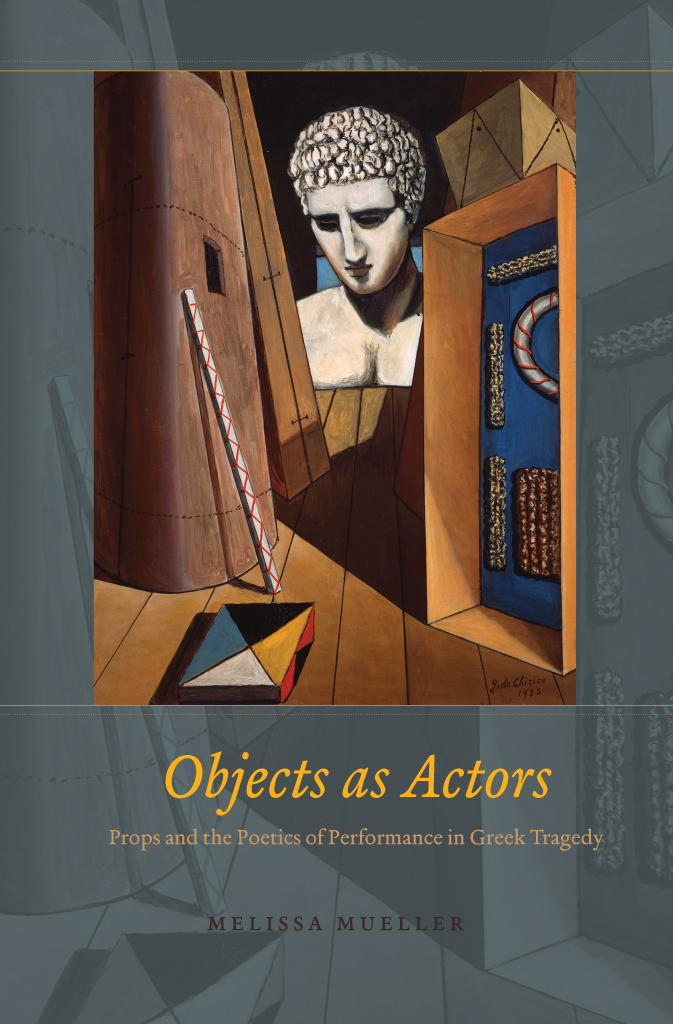
MELISSA MUELLER
The University of Chicago Press
Chicago and London
Melissa Mueller is associate professor of classics at the University of Massachusetts, Amherst.
The University of Chicago Press, Chicago 60637
The University of Chicago Press, Ltd., London
2016 by The University of Chicago
All rights reserved. Published 2016.
Printed in the United States of America
25 24 23 22 21 20 19 18 17 16 1 2 3 4 5
ISBN -13: 978-0-226-31295-8 (cloth)
ISBN -13: 978-0-226-31300-9 (e-book)
DOI : 10.7208/chicago/9780226313009.001.0001
Library of Congress Cataloging-in-Publication Data
Mueller, Melissa, author.
Objects as actors : props and the poetics of performance in Greek tragedy / Melissa Mueller.
pages cm
Includes bibliographical references and index.
ISBN 978-0-226-31295-8 (cloth : alk. paper) ISBN 978-0-226-31300-9 (ebook) 1. Greek drama (Tragedy)History and criticism. 2. Stage props. I. Title.
PA 3203. M 84 2015
792.02'50938dc23
2015014455
This paper meets the requirements of ANSI/NISO Z 39.48-1992 (Permanence of Paper).
For my parents
This book is the product of a long period of reflection on objects in Greek tragedy. It is a pleasure to thank here the colleagues and friends who offered support and guidance over many years, and to acknowledge the institutions that enabled the books completion. A residential fellowship at the Center for Hellenic Studies in Washington, DC, in 200910, gave me the time and the courage to envision the project anew. Im grateful to CHS director Gregory Nagy and the senior fellows for making the resources of the Center available to me and to my cohort of fellow researchers for their stimulating conversation and camaraderie. The College of Humanities and Fine Arts at the University of Massachusetts, Amherst, generously provided the supplementary funding that made my stay in DC possible.
Individual chapters of this book have been read and judiciously critiqued by Joshua Billings, John Gibert, Justina Gregory, Mark Griffith, Debbie Felton, Donald Mastronarde, Alex Purves, Antonia Syson, and Oliver Taplin. Im also indebted to the anonymous readers of two previously published articles: Athens in a Basket: Naming, Objects, and Identity in Euripides Ion, which appeared in Arethusa (43:365402) in 2010, and Phaedras Defixio: Scripting Sophrosune in Euripides Hippolytus, which appeared in Classical Antiquity (30:14877) in 2011. I acknowledge with gratitude the permission granted by the Johns Hopkins University Press and the University of California Press to include portions of these articles in chapters , respectively.
Audiences at the University of California at Santa Barbara, the University of Toronto, the American University of Paris, Brandeis University, the University of Massachusetts at Amherst, Leiden University, the University of North Carolina at Chapel Hill, Smith College, and Yale University heard early versions of several chapters, and provided valuable feedback.
Conversations and correspondence with Roberto Alejandro, Joselyn Almeida-Beveridge, Emily Baragwanath, Yelena Baraz, Lilah Grace Canevaro, Andrs Fabin Henao Castro, Francis Dunn, Petra Kalshoven, Andromache Karanika, Naomi Rood, Tyler Rowland, Seth Schein, Janine Solberg, Barry Spence, and Antonia Syson renewed my enthusiasm and nuanced my thinking at critical junctures. My classics colleagues at UMass-Amherst were patient with me as months of revisions stretched into years. And Maria Bulzacchelli and Debbie Felton made Amherst into a home away from home during much of that time.
My writing has benefited immensely from the interventions and incisive comments of six readers who critiqued drafts of the manuscript in its entirety, at various stages. Egbert Bakker sharpened the analysis, style, and structure of the whole; Helene Foley wisely urged me to rethink and rewrite the Oresteia chapter; Leslie Kurke helped me see where the theatrical and the political intersected; Laura McClure encouraged me to simplify and to summarize; Mario Tel introduced me to the affective turn, significantly expanding my sense of what objects can do, while Donald Mastronarde made many improvements to both the style and substance of a penultimate draft. I also wish to thank Reader B, one of the three readers chosen by the University of Chicago Press, for a set of comments that challenged me to deepen my engagement with theater and performance studies. Im especially grateful to Susan Bielstein for seeing the projects potential at an early stage, and for expertly shepherding it through the review process at the Press. Id also like to thank James Whitman Toftness for his help in securing permissions and preparing the manuscript for production and Kathryn Krug for her excellent copyediting. All errors and infelicities are, of course, my own.
I have been wonderfully lucky in having had teachers who were as generous as they were exacting. Here I single out three who have significantly shaped this work. Helene Foley, Leslie Kurke, and Donald Mastronarde not only provided inspirational models for how to read tragedy, but also acted as daimones ek ponn epargoisteering me safely to shore on more than one occasion. I have been fortunate also in my friends. Larry Kim and Sira Schulz, Dylan Sailor, and Jolle Tamraz have sustained me for more years than I care to count, reminding me of what really matters. No words can capture what I owe Egbert Bakker, who has had to live with a work in progress for far too long. I thank him for reminding me to look to the end, and for showing me the way. I dedicate Objects as Actors to my parents, Alfred and Julia Mueller, who have waited forty years for the thesis to become a book.
As actors, stage objects vest nonhuman elements in the tragic text with a physical presence. Once we imagine these in their materialized formonce, that is, we fully reanimate them as propsobjects can be recognized for doing what they do best: provoking surprising turns of plot, eliciting unexpected reactions from viewers both inside and outside of the theatrical frame, and furnishing us with some of tragedys most thrilling moments of pure theater. When we see objects as actors, we discover that they are vital to the performance and reception of tragedy in Athens during the second half of the fifth century BCE.
Props get to the heart of what is humanlyand nonhumanlypossible. Previous scholarship has tended to downplay the role of the nonhuman in several key episodes where props take on uncanny agency. For example, readers of Sophocles Ajax have often assumed that Ajax must be speaking deceitfully when he professes to have changed his mind about suicide. Deception has been invoked to smooth over the perceived illogicality of his subsequent behavior, namely, the fact that he then goes on to kill himself. Yet, if his sword (the gift of his enemy-turned-friend, Hector) is duly registered as a physical presence, one that shapes both what Ajax says and how we hear his words in this troubling speech, the heros ultimate failure to spare his life becomes less baffling. The swords hostilitythe lingering traces of Hectors animus reifiedmanifests itself as a distinctly negative force in the plots unfolding, providing the basis for the new reading of Ajaxs suicide in .
Verbal allusion heightens our sense of how the sword continues to
Font size:
Interval:
Bookmark:
Similar books «Objects As Actors»
Look at similar books to Objects As Actors. We have selected literature similar in name and meaning in the hope of providing readers with more options to find new, interesting, not yet read works.
Discussion, reviews of the book Objects As Actors and just readers' own opinions. Leave your comments, write what you think about the work, its meaning or the main characters. Specify what exactly you liked and what you didn't like, and why you think so.

